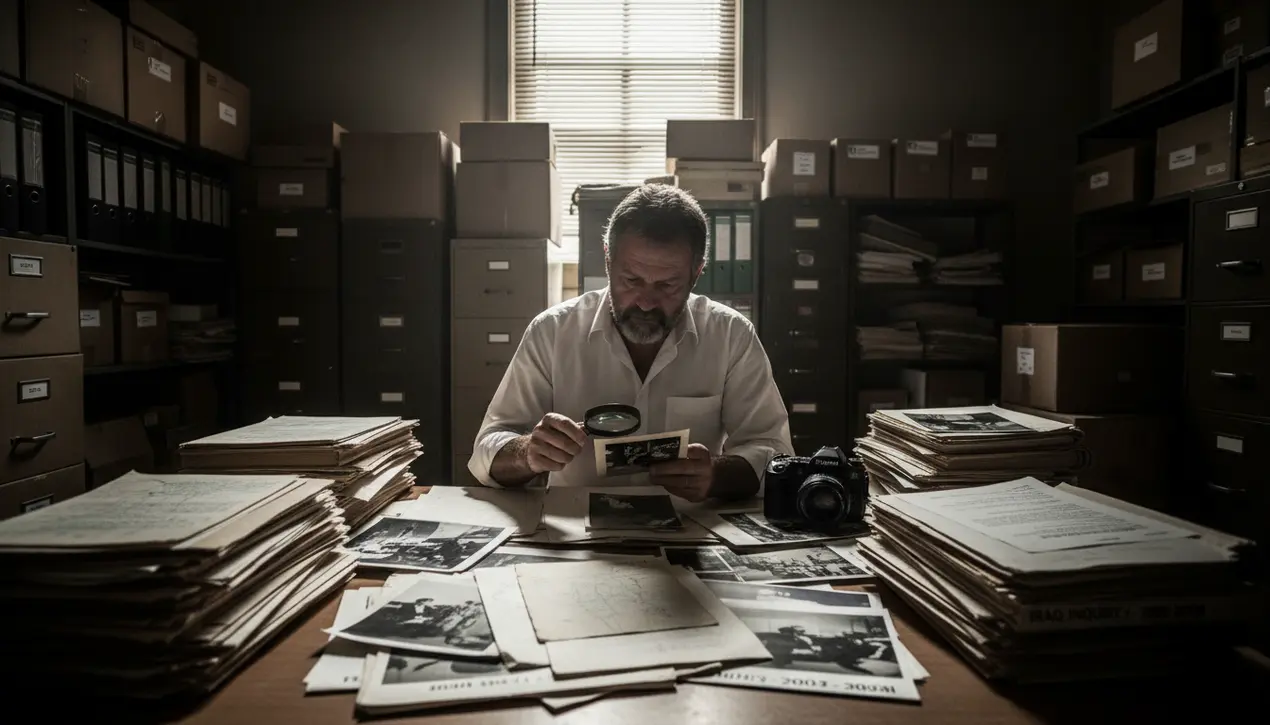
Politicsconflict & defenseWar Reports and Casualties
New Evidence Raises Doubts in US Iraq War Crimes Case.
RO
Robert Hayes
3 hours ago7 min read2 comments
A fresh examination of evidence has cast a long, troubling shadow over the United States' most protracted war crimes investigation stemming from the Iraq War, raising profound questions not only about the specific case but about the entire architecture of military accountability. This development strikes at the heart of a decades-old dilemma: how does a superpower effectively police its own forces in the fog and friction of combat? The investigation in question, which has stretched across multiple administrations, pertains to alleged atrocities committed by U.S. personnel, details of which have been fiercely contested by veterans' groups and human rights organizations alike.The emergence of new testimony or forensic data—the precise nature of which remains under tight wraps—reportedly challenges the official narrative that has been meticulously constructed over years, suggesting potential misinterpretations of battlefield actions or even procedural missteps in the initial evidence gathering. This is not merely a legal technicality; it is a crisis of legitimacy.Historically, the pursuit of justice for war crimes has been a fraught endeavor, from the Nuremberg trials establishing precedent for crimes against humanity to the more recent, complex prosecutions at the International Criminal Court, which the U. S.notably does not recognize. The current doubt infecting this case echoes the contentious aftermath of incidents like the Haditha massacre or the Abu Ghraib abuses, where the gap between military justice and public perception of accountability seemed a chasm.Military law experts point to the immense difficulty of prosecuting cases years after the fact, where memories fade, evidence degrades, and the context of counter-insurgency warfare—a form of conflict that blurs the lines between civilian and combatant—complicates every judgment. A senior analyst from the Center for Civilians in Conflict noted, 'When new evidence surfaces this late, it forces a re-evaluation of the entire process.It can vindicate the accused, but it can also reveal systemic failures in how we initially approach allegations of this magnitude. ' For the Iraqi civilians affected, this judicial uncertainty perpetuates a cycle of impunity and trauma, fueling anti-American sentiment and undermining long-term strategic goals.Conversely, for American service members, it creates a legal morass where the fear of retrospective judgment can paralyze decision-making in future engagements. The consequences are seismic: a loss of faith among allies, a potent propaganda tool for adversaries, and a deepening of the moral injury within the ranks of the military itself.If this new evidence leads to the case's collapse, it will be hailed by some as a correction of a wrongful pursuit, but condemned by others as the final failure to deliver justice. Ultimately, this is more than a single court martial; it is a referendum on whether a nation's military can truly hold itself to the standards it professes to defend, a test that, like Churchill's description of Russia, remains a riddle, wrapped in a mystery, inside an enigma.
#Iraq war
#US Marines
#war crimes
#investigation
#accountability
#featured
Stay Informed. Act Smarter.
Get weekly highlights, major headlines, and expert insights — then put your knowledge to work in our live prediction markets.
Comments
Loading comments...
© 2025 Outpoll Service LTD. All rights reserved.